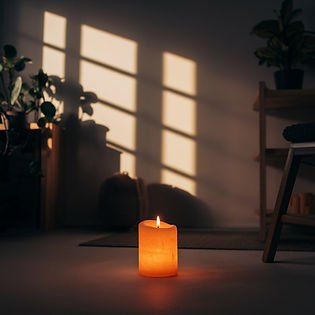In a world that’s always ‘on,’ where social connections are celebrated and we’re constantly plugged into the digital noise, solitude often gets a bad rap. It’s all too easy to confuse being alone with feeling lonely. Solitude though, when embraced, can be a superpower! It’s a chance to recharge, grow, and reconnect with yourself. Want to learn what the difference is between solitude and loneliness? Continue reading, watch this video and learn how time spent on your own can be transformative and one of your greatest sources of strength and well-being!
The Science of Solitude & Well-Being
Recent research highlights that solitude, when embraced voluntarily, can lead to significant psychological benefits. The study by Weinstein and colleagues in 2023, demonstrates that there is no “one-size-fits-all” balance between solitude and socialising. Instead, well-being depends on how solitude is perceived and whether it’s chosen autonomously. The study found that when individuals chose solitude for self-reflection or relaxation, they experienced less stress and greater life satisfaction. However, solitude that felt imposed or prolonged led to loneliness and dissatisfaction (Weinstein et al., 2023).

Furthermore, another recent study by Liu and colleagues in 2023, explored how different types of solitude—self-determined and non-self-determined—affect mental health through the lens of Fear of Missing Out (FoMO). Positive solitude, where individuals engage in alone time for personal growth, was associated with reduced stress and increased autonomy. In contrast, non-self-determined solitude, such as social avoidance, contributed to heightened FoMO, leading to higher levels of anxiety and depression (Liu et al., 2023).
These findings underscore a crucial point: the way we approach solitude shapes its impact on our mental health. If solitude is embraced as a time for growth, creativity, and self-compassion, it can become your powerful ally in well-being.
From Anxiety to Empowerment
Solitude wasn’t always easy for me. During Melbourne’s strict COVID-19 lockdown in 2020, I felt confined both physically and emotionally. The 5km restriction kept me from seeing my family, and I was also dealing with crippling anxiety. Before the pandemic, my life was filled with constant coaching, fight training, and dieting to cut weight. The stress took a toll—rashes appeared on my neck, I shook in the mornings, and my chest was constantly tight.

Lockdown forced me to confront solitude, and I started journalling, even though it felt uncomfortable at first. I wrote down my goals, affirmations, and gratitude, trying to focus on the neuroscience-backed benefits I’d proactively learnt about. Slowly, this helped build my self-esteem and rewired my focus toward positivity.
Along with journalling, I began practicing mindfulness, starting with just a few minutes of breathwork (‘box-breathing’) each day. Over time, what I once (completely!) dreaded became my refuge. I learned to embrace solitude, using it as a time for self-reflection and mental clarity. Now, solitude is a key part of my life – It’s my empowerment tool for growth and balance. This journey taught me that with intention and a positive mindset, solitude can lead to emotional resilience and self-discovery.
The Positive Power of Reframing Solitude: Mastering The Benefits, & Kicking FoMO & Loneliness

The research supports what I experienced firsthand: reframing solitude can make all the difference. A 2023 study by Rodriguez and colleagues in 2023 found that individuals who reframed solitude positively experienced increased relaxation and lower stress levels. The study suggested that viewing alone time as beneficial helped individuals—especially those prone to loneliness—experience solitude in a restorative way (Rodriguez et al., 2023).
This mindset shift can be cultivated through practical strategies such as:
- Mindfulness: Engage in breathwork or meditation to become present with your thoughts and emotions without judgment. Studies have shown that mindfulness practices, such as meditation, can activate brain regions associated with emotion regulation and cognitive flexibility, helping reduce stress and anxiety while enhancing overall well-being. Mindfulness also promotes neuroplasticity, allowing the brain to rewire itself for better emotional responses (Liu et al., 2023; Rodriguez et al., 2023).

- Journalling: Use solitude as a time to reflect on your goals, emotions, and progress. Write down affirmations and gratitudes to foster a positive mindset. Writing down affirmations and gratitudes has been shown to activate the brain’s reward system, boosting mood and fostering a positive mindset. Neuroscience research supports that journalling can enhance emotional regulation by processing difficult feelings and creating pathways for optimism and self-esteem (Thomas, 2021; Weinstein et al., 2023).
- Creative Projects: Solitude provides the mental space for creativity. Use your alone time to focus on hobbies, whether it’s painting, writing, or cooking. Solitude provides the mental space for creativity. Whether it’s painting, writing, or cooking, creative activities engage brain regions involved in problem-solving and innovation. Research shows that time spent alone, particularly when chosen intentionally, can lead to enhanced creativity, as the brain is less distracted and more focused on deep thinking (Rodriguez et al., 2023; Frontiers in Psychology).
- Balanced Social Interactions: Solitude works best when it is balanced with meaningful social connections. Make time for both, and recognise when you need either. Research supports that the autonomy of choosing solitude, combined with time spent with others, can create a healthy balance that boosts well-being. The key is recognising when you need either to maintain emotional balance and avoid the negative effects of prolonged loneliness (Liu et al., 2023; Rodriguez et al., 2023).
Embracing Solitude in a Hyper-Connected World

In a society that celebrates constant connectivity, solitude can often feel like an empty space we’re desperate to fill. Yet, it offers something priceless—a chance to reconnect with ourselves. By viewing alone time as an opportunity for growth, creativity, and self-compassion, we can shift our mindset and turn solitude into a powerful source of strength.
The key is in the perspective. Whether through journalling, mindfulness, or simply taking time for yourself, solitude becomes your ally, not something to fear. Solitude is an act of self-care. As I’ve learned through my own journey, both professionally and personally, embracing solitude with the right mindset can transform your mental and emotional well-being. By mastering the benefits of solitude, FoMO, and loneliness, you can shift your perspective to thrive emotionally and mentally, using solitude as a powerful tool for growth and self-discovery.
If you’re ready to embrace solitude (and your well-being) in all the glory, or want to shift your perspective on alone time, I’m here to help. Reach out to me on Instagram, TikTok, or directly at gabrielle@onpointpsychotherapy.com. You can also visit my website at On Point Psychotherapy. Let’s connect!
References
Liu, X., Liu, T., Zhou, Z., & Wan, F. (2023). The effect of fear of missing out on mental health: Differences in different solitude behaviors. BMC Psychology, 11(141), (pp. 1-8). https://doi.org/10.1186/s40359-023-01184-5
Rodriguez, M., Pratt, S., Bellet, B. W., & McNally, R. J. (2023). Solitude can be good—If you see it as such: Reappraisal helps lonely people experience solitude more positively. Journal of Personality, (pp. 1-18). https://doi.org/10.1111/jopy.12887
Thomas, V. (2021). Solitude skills and the private self. Qualitative Psychology, 10(1), (pp. 121-139). https://doi.org/10.1037/qup0000218
Weinstein, N., Vuorre, M., Adams, M., & Nguyen, T.-V. (2023). Balance between solitude and socializing: Everyday solitude time both benefits and harms well-being. Scientific Reports, 13(21160). https://doi.org/10.1038/s41598-023-44507-7
Gabrielle-Beth Volovsky
Psychotherapy and Counselling Professional
Certified PACFA Counsellor
